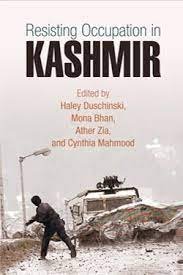Duplicity and deceit in annexation of Junagadh, Hyderabad, Kashmir
Hidden truth behind post-partition power games played by Indian leaders
SETTING THE RECORD STRAIGHT
May 2, 2025
THE partition of British India in 1947 remains one of the most traumatic geopolitical events in the history of Asia. Amidst the bloodshed, mass migrations, and the emergence of two new sovereign countries — India and Pakistan — an ugly episode took place behind the scenes: the calculated annexation of princely states by the Indian National Congress under the leadership of Jawaharlal Nehru and Vallabhbhai Patel, as Mahatma Gandhi looked on silently.
While the Congress publicly espoused principles of democracy and the right to self-determination, its actual policies towards Kashmir, Junagadh, and Hyderabad (Deccan) exposed a pattern of strategic duplicity and realpolitik. At the crux of the issue lay the British offer to princely states to choose their fate — accede either to India or Pakistan, or opt for independence.
The Congress leaders initially agreed to this framework, but as the political chessboard evolved, so too did their principles. When the choices of the rulers did not align with the interests of the Indian Union, Nehru and Patel quickly jettisoned their professed ideals in favour of military and political manoeuvring to ensure that these regions were absorbed into India.
Junagadh
Junagadh, a princely state on the south-western coast of present-day Gujarat, was ruled by a Muslim nawab, Mahabat Khanji III, who chose to accede to Pakistan in August 1947. His decision was well within the legal framework laid down by the British. However, the state had a Hindu majority population — a point that Patel and the Congress swiftly exploited. India responded with a blockade, effectively choking Junagadh economically.
Troops were moved in under the guise of restoring order, and a plebiscite was conducted in February 1948, yielding a predictably lopsided result in favour of accession to India. The duplicity here is stark: the Congress, which had earlier argued that the ruler's decision should be binding, now overturned that principle on the grounds of popular will. Patel famously said that the wishes of the people must prevail. The same logic, however, was conspicuously absent in the case of Kashmir, where the demographic majority was Muslim and the ruler Hindu.
Hyderabad
Hyderabad, the richest and most powerful princely state, declared its intention to remain independent. The Nizam, Mir Osman Ali Khan, sought a status akin to sovereignty, resisting pressures from both India and Pakistan. Nehru and Patel viewed this as a challenge to the nascent Indian state's territorial integrity.
Despite Hyderabad not acceding to Pakistan, and its attempts to negotiate a ‘standstill agreement’ with India, Patel sent in troops in September 1948 in a military operation code-named "Operation Polo". Indian forces overwhelmed the Hyderabadi resistance in just five days.
The annexation was then justified on the grounds of lawlessness and the activities of the Razakars — a private militia supporting the Nizam. Again, democratic values and self-determination were sidelined in favour of brute force.
The Congress claimed that Hyderabad’s independence was a threat to India’s internal security — a rationale that conveniently ignored the state’s legal right to independence and the possibility of a neutral resolution through international mediation.
Kashmir
The case of Jammu and Kashmir reveals perhaps the most egregious example of double standards. A Muslim-majority state ruled by a Hindu monarch, Kashmir initially chose not to accede to either dominion. But when tribal militias from nearby regions entered its territory in October 1947, Maharaja Hari Singh turned to India for military support. India agreed — but only after receiving an Instrument of Accession signed by the Maharaja.
Nehru promised that once peace was restored, a plebiscite would be held to determine the will of the Kashmiri people — a promise made not only to Pakistan, but also to the United Nations. That plebiscite, however, never took place.
Over time, the Indian state entrenched its hold over Kashmir through political machinations and military presence, reneging on its international commitments. In 2019, it even revoked the limited autonomy that had been granted to the disputed and occupied territories under the Indian constitution
The myth of consistency
The most glaring inconsistency across these three cases remains the selective use of plebiscites. In Junagadh, one was conducted quickly to validate a military intervention. In Hyderabad and Kashmir, despite widespread calls — including from the international community — for referendums, none were held.
What emerged was a pattern: where a plebiscite favoured Indian interests, it was pursued; where it risked undermining those interests, it was indefinitely deferred or denied. Today, India lectures everybody about the merits of democracy, particularly its neighbours. But what it conveniently forgets is that it has huge skeletons in its cupboard. The very foundation of India laid in 1947 was built upon deceit and deception.
To be sure, Nehru and Patel — who are often praised for "unifying a fractured subcontinent" — must also be remembered for their political hypocrisy. Their vision of India was not forged solely through high ideals but also through manipulation and militarism. They bent the rules when it suited them, cited law and order when convenient, and invoked the will of the people only when it delivered the desired outcome.
India’s early years were marked not by the seamless integration of states, but by a calculated series of actions that exposed the gap between its professed ideals and actual policies. The annexations of Junagadh, Hyderabad, and Kashmir were not triumphs of democracy, but of expediency masquerading as principle.
In understanding this legacy, it becomes clear that modern India’s claims to moral superiority must be tempered by an honest reckoning with its origins. Only then can a genuine democratic ethos be cultivated — one that is not rooted in selective memory, but in historical truth.

